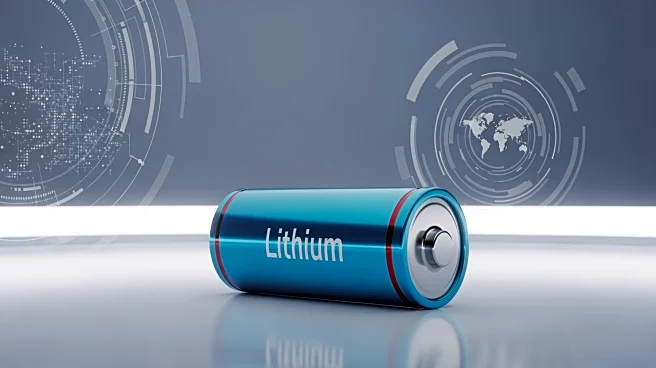What's Happening?
China's State Administration for Market Regulation has conditionally approved a joint venture between Chilean state-run copper company Codelco and local lithium producer SQM. This venture aims to enhance
lithium production in the Atacama salt flats, aligning with Chilean President Gabriel Boric's strategy to increase state control over the lithium industry. The approval follows consultations with various stakeholders, including government bodies and industry associations. The Chinese regulator has stipulated that in the event of significant supply changes, both companies must ensure continued supply of lithium carbonate to Chinese customers without undue restrictions or delays. This decision comes after similar approvals from regulatory bodies in the European Union, Brazil, Japan, South Korea, and Saudi Arabia.
Why It's Important?
The conditional approval of this joint venture is significant as it impacts the global lithium supply chain, particularly for China, a major consumer of lithium for its burgeoning electric vehicle industry. By ensuring a steady supply of lithium carbonate, the agreement supports China's strategic interests in securing essential raw materials for battery production. The venture also reflects a broader trend of countries seeking to exert greater control over critical mineral resources, which are vital for the transition to renewable energy technologies. The deal's approval could potentially stabilize lithium prices and influence global market dynamics, benefiting industries reliant on lithium, such as electronics and automotive sectors.
What's Next?
With the Chinese approval secured, Codelco and SQM are expected to finalize their partnership, potentially before the end of the current Chilean administration in 2026. The joint venture may face further scrutiny and potential legal challenges, particularly from competitors like China's Tianqi, a significant investor in SQM. The companies will need to navigate these challenges while adhering to the conditions set by the Chinese regulator. The outcome of this venture could set a precedent for future international collaborations in the lithium sector, influencing regulatory approaches and competitive strategies globally.









